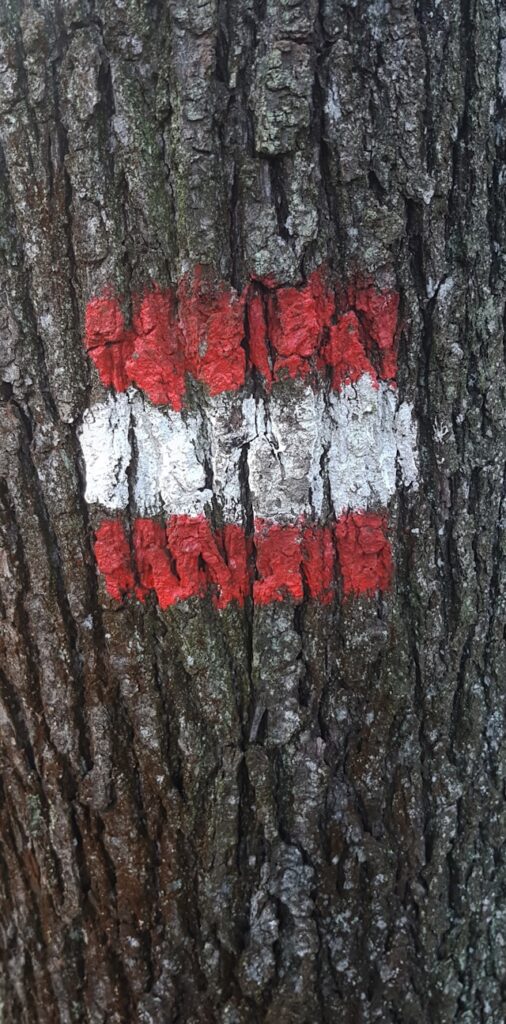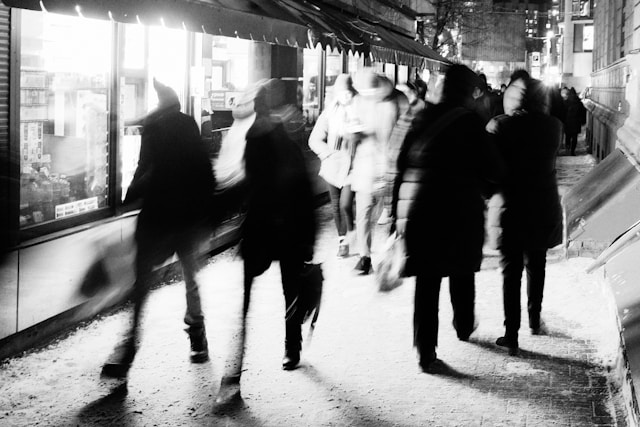When most people hear the phrase “woman trafficking”, they probably think first and foremost of far-away countries such as Cambodia, Laos, Thailand and Vietnam. But how does the situation look in Europe? In 2022 alone, 56 cases of human trafficking and cross-border trafficking for the purposes of prostitution were recorded in Austria, although the true figures are probably far higher. Despite the fact that trafficking in women has generated huge attention in recent years, it is actually far from a new phenomenon. Since the 19th and 20th centuries, Vienna has been a hub and cross-over point for women trafficking, as a new documentary, “Universum History: Aufstand im Bordell – Frauenhandel um 1900” , edited by Stefan Ludwig, shows.
MARIE KÖNIG AND LIFE IN THE BORDELLO
Trading in “women as a good” has always been a profitable business – and Imperial Vienna was no exception. This was the focus of the new “Universum-History” documentary, which was produced in a collaborative effort by RF, NDR-ARTE and Geyrhalter Film.
The documentary takes a unique look at the life of a Viennese working-class girl, Marie König. In the spring of 1902, Marie, who was 16 years old at the time, fled her violent father. Once out and alone on the Praterstraße, however, she was soon targeted by a so-called “Kupplerin”, who took her to the bordello of Regine Riehl for payment. Instead of the better life she was initially promised, however, Marie experienced nothing but abuse and slavery in the bordello: the windows were barred, her street clothes were taken away from her, she was incarcerated, received no money, and she was both psychologically and physically abused. She was only allowed to go for a walk, in the courtyard of the bordello, for two hours a week. Her father, whom she had actually wanted to escape, received regular payments from Riehl. Three years later, Marie described the conditions she lived in at the “Salon Riehl” to journalist Emil Bader, as a result of which Bader took the bordello operator to court. The “Riehl trial” which came about as a result shocked Viennese society: people could imagine a bordello in Buenos Aires or Brazil, where many of the girls were taken, but at the very heart of a highly-regarded Viennese district? For many, that was just unthinkable.

VIENNA´S DARK HISTORY

Unfortunately, however, the story of the young Viennese girl was anything but a one-off case. Historian Lothar Hölbling from the University of Vienna has analysed police files from the years 1880 to 1900 dealing with human trafficking, and emphasises that this crime “was probably the first organised crime by modern standards”.
The documents also show that Vienna was serving as a central hub for human trafficking of women between Austro-Hungary and South America. The most important recruiting regions for human traffickers were Russia, and more disadvantaged regions of the Habsburg Monarchy across Eastern Europe, such as Galicia and Bukovina. In these regions, many of the girls being trafficked were Jewish, who had been forced into exile due to pogroms and discriminatory laws in Tsarist Russia.
The methods of recruiting at the time were similar to today’s: traffickers would lure girls with false promises, then take them to bordellos around the world. To begin with, the women would have their documents, personal clothing and any objects of value taken away from them, and they would be informed that they had to pay off the costs of the journey by working in the bordellos. Later on, the costs of accommodation and food would be added to this until, within a short time, the women were forced into a situation of complete economic dependence.
Even back in the nineteenth century, however, the struggle against trafficking girls was generating international attention, leading to the signing of bilateral agreements, culminating in 1910 in the first international treaty designed to combat this evil. After the First World War, the League of Nations also dedicated itself intensely to this challenge. In Austria, a number of measures were taken in 1919, such as the setting-up by police of a central department for monitoring girl trafficking, with the help of a range of organisations, in an effort to counter the trade.
STILL A PROBLEM
While slavery has changed over the years, of course, Vienna in general remains a target for human traffickers, for a number of reasons. First of all, Vienna is located at the heart of Europe, making it an important transport hub. The city’s advantageous location makes it attractive to criminal organisations bringing people in from other countries, from where they can be trafficked to other parts of Europe.
The Austrian capital is also a wealthy city with a thriving economic life in its own right, of course. This primarily attracts people from poorer regions, who come here in the hope of a better life. Unfortunately, some of these also fall victim to human traffickers, who continue to use deceptions and half-truths to exploit their vulnerability.
Vienna is also one of the most popular tourist destinations in Europe, attracting millions of visitors each year. This high inward flow of tourists offers human traffickers the opportunity to conceal and exploit their victims within those crowds of visitors.
Those affected continue to be exploited in a range of sectors, including as workers in the domestic work sector, construction, gastronomy, cleaning, agriculture, organised gambling, and the commission of criminal acts and child trafficking. To do this, improper means are used to lock people into forced labour, including threats of violence, rape, deception and deceit. The largest proportion of human trafficking and slavery is made up of sexual exploitation, primarily of women and girls, but also of boys and young men. Forced prostitution is responsible for the largest proportion of modern slavery.
WHERE CAN I REGISTER?
If you would like to receive information relating to human trafficking, you can contact the Human Trafficking Hotline of the Federal Criminal Police Office at any time. This hotline is available around the clock:
Tel: +43-677-61343434
E-mail: menschenhandel@bmi.gv.at
E-mail: humantrafficking@bmi.gv.at
Translated by Tim Lywood
#Menschenhandel #Frauenhandel #Sklaverei #Ausbeutung #Wien #AgainstHumanTrafficking #GegenMenschenhandel #EndExploitation #EndTrafficking #HopeForTheFuture #Österreich
